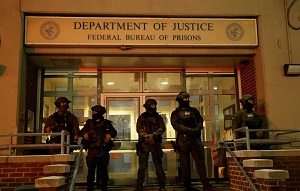Economic, social hardships true culprit behind rising crime rates — experts

The Jordan Times
AMMAN — Sociologists and criminologists have warned that the recent spate of murders in the Kingdom was the result of economic and social hardship that pushed Jordanian society to reach a “state of anomie”.
“Economic hardship is creating problems within society and some people are becoming more and more desperate,” criminologist Sabri Rbeihat said.
This, Rbeihat told The Jordan Times in a recent interview, would push people to view others within their immediate surroundings as barriers.
Rbeihat was referring to half a dozen murders and crimes that occurred during the month of July, which involved parents murdering their children and brothers killing their sisters.
One of the murder incidents involved a mother who was charged with manslaughter in connection with the alleged strangulation of her two children in Amman on July 30.
On July 5, a 49-year-old father allegedly murdered his 12- and nine-year-old daughters in Ramtha District over a span of 10 days.
The suspect allegedly buried one child in a shallow grave, while dumping the body of his second daughter in a cesspool in the backyard of the house.
In another incident on July 31, a man allegedly stabbed and injured six people in Jerash Hospital with a sharp tool. All the injured are receiving treatment.
Investigators are being tight-lipped over the motives behind the two murders and the stabbing incident at the hospital.
The economic hardship is causing people to lose hope and this “gloomy environment brings out the negative energy and some individuals are becoming very hostile”, Rbeihat said.
"My feeling is that today our society has reached an anomie stage and the norms are no longer respected,” according to Rbeihat.
“It is clear that people are not happy and the level of tension is very high and leading to an increase in violent actions and criminal behaviour,” Rbeihat noted.
That is why, he said, “we are witnessing new forms of crimes in which parents are murdering their children because they are causing them economic hardship, thinking that this would be an alternative to reduce the responsibility they are facing”.
Secretary General of the National Council for Family Affairs Mohammad Miqdadi had said in a recent interview that the Kingdom is witnessing an increase in crime incidents within families.
In 2019, Miqdadi told The Jordan Times, the reported cases were around 10,000, but recently, the reported “cases are estimated to be 14,000”.
“There are many factors that are contributing to this increase, including poverty, unemployment, drug abuse, psychological problems and the surrounding social environment,” according to Miqdadi.
Sociologist Hussein Al Khozahe told The Jordan Times that the recent wave of murders is the result of what he described as “barricaded families”.
“No outsiders are allowed to interfere or solve problems within families and the father or male guardians are usually the ones with the final say in everything,” Khozahe said.
At the same time, Khozahe told The Jordan Times, the role of “male members within the families is magnified and the feel that they can do whatever they want with their family members and this includes harming or murdering them”.
“Since no one is allowed to interfere and problems are not addressed properly or quickly, it causes the situation to become more complicated and this might lead to murders,” according to Khozahe.
On a social level, the sociologist said the society lacks proper dialogue and “no one is willing to accept of respect the opinion of others”.
Instead, he added, “some individuals prefer to take the law into their own hands and are not willing to wait for justice to take its course”.
Khozahe said that improving the economic condition for Jordanians would work as a factor in reducing crime in general.
“The solution is to adopt new policies that are directed at improving the wellbeing and happiness of the Jordanian people,” added Rbeihat.




